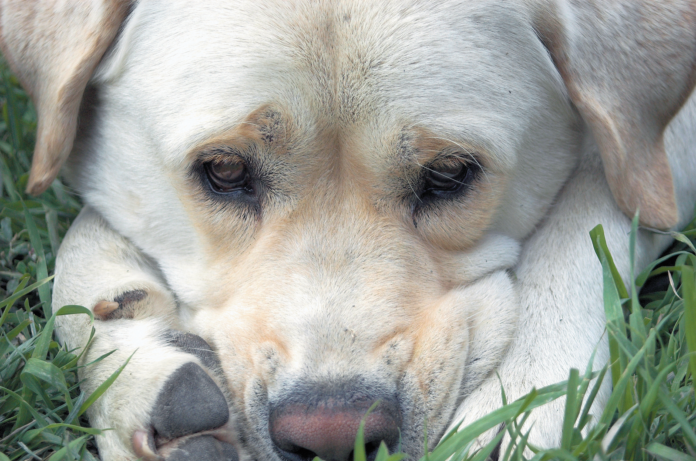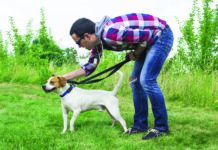You know the jingle, “Sticks and stones may hurt my bones, but words can never harm me.” It doesn’t apply when it comes to your dog. There’s a set of terms people frequently use to describe their pets that mischaracterizes the way the animals think and their motivations for engaging in various behaviors. That in turn mistakenly sets up an us-against-them dichotomy that’s entirely manmade. Dogs generally are not coming from the adversarial place we ascribe to them. Here’s a rundown of words that can solidify our harmful notions about our pets and that may make us suspicious of them at the least and harmful to them at worst.
Dominant. This is a big one, along with “alpha.” But it’s generally misapplied. When we think of “dominant” and “alpha” in terms of people, we tend to think of those with a lot of swagger, people who want to “win” and lord it over others. That, in turn, makes some dog owners think, “I’ll show him who’s really the alpha.”
But “dominance” in dogs is not about being the alpha. It’s about having priority access to certain resources, and that will change depending on the situation so no dog will ever try to be dominant all the time “just because.” Some dogs may have priority access to a seat on the couch, so they are “dominant” in that situation. Another dog may be “dominant” about a certain toy. Dogs work it out; they know what resource is important to which dog. And they tend to work it out without aggression. While dominant people can be aggressive, dogs who are dominant in a particular situation are not.
The bottom line: Dogs don’t think they come first, so there’s no need to “put them in their place.” They’re not engaged with you in a struggle for power.
Willful. If you say ‘Come’ when a terrier is chasing a squirrel and the dog doesn’t come, he’s not being willful. He’s being a dog. “It’s like saying a subway train is willful for staying on its rails,” says the head of the Tufts Animal Behavior Clinic, Stephanie Borns-Weil, DVM.
Willfulness can also be about fear or anxiety. A dog who is having trouble doing what you ask may be feeling nervous about something that isn’t apparent to you. Or maybe he’s simply confused. Perhaps you haven’t trained him to heed a certain cue so he understands that when he does what you want, he will be rewarded with a treat and enthusiastic praise. If he senses your frustration at his inability to follow through on your request, he might be even less likely to comply. No one is at his best when he feels that someone who has authority over him is angry at him.
Vindictive. This word should never be applied to a dog. To be vindictive you have to scheme to get back at someone, and dogs just don’t have any drive for revenge. For instance, if you leave the house and your dog trashes it, he is most likely scared to death because of separation anxiety. He is not trying to punish you for leaving him alone.
If you react as though he wanted to “make you pay” when you come back home, yelling at your pet or worse, it will only make him more anxious. You will in effect be abusing him for feeling nervous.
Vicious. The word “vicious” connotes meanness. If you are a vicious gossip, for instance, you have unkind feelings toward someone and are okay with causing them harm by talking about them behind their back. Dogs don’t have a vicious bone in their body.
There are certainly dangerous dogs — dogs who are aggressive to the point that they can cause harm. But aggression in a dog is never about wanting to cause harm for harm’s sake. In fact, almost always, aggressiveness is a dog’s last resort in the face of fear. He’s feeling threatened to the point that he feels he has no choice but to protect himself physically.
Stupid. This word is not about assuming dogs are trying to pull one over on us, but it can create problems in our relationship with our pets nevertheless. When we call a dog stupid, we are saying we must have a diminished relationship with them because they don’t “get” us. But a dog’s getting us is largely our responsibility. We have to train a dog patiently and in small, gradual steps, with lots of encouragement for getting it right. And we have to do it deftly. It you train a dog to sit and then he stands and you immediately give him a treat, you are rewarding him for standing, not sitting. He could argue that you’re stupid for not teaching him what you want him to learn.





